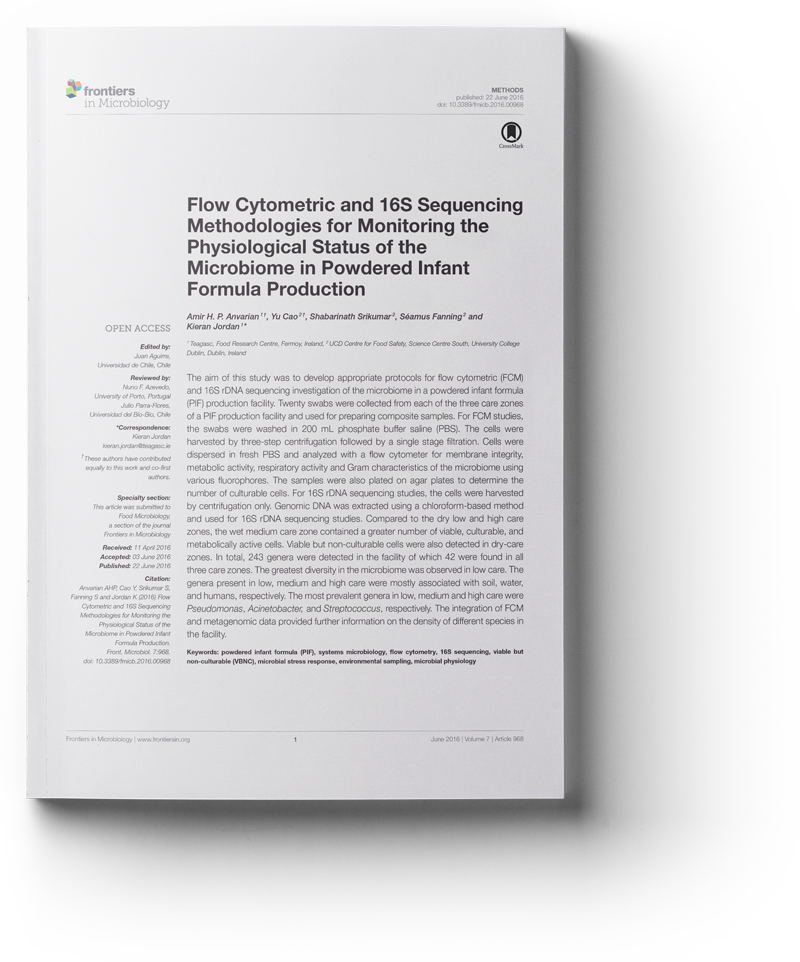The aim of this study was to develop appropriate protocols for flow cytometric (FCM) and 16S rDNA sequencing investigation of the microbiome in a powdered infant formula (PIF) production facility. Twenty swabs were collected from each of the three care zones of a PIF production facility and used for preparing composite samples. For FCM studies, the swabs were washed in 200 mL phosphate buffer saline (PBS). The cells were harvested by three-step centrifugation followed by a single stage filtration. Cells were dispersed in fresh PBS and analyzed with a flow cytometer for membrane integrity, metabolic activity, respiratory activity and Gram characteristics of the microbiome using various fluorophores. The samples were also plated on agar plates to determine the number of culturable cells. For 16S rDNA sequencing studies, the cells were harvested by centrifugation only. Genomic DNA was extracted using a chloroform-based method and used for 16S rDNA sequencing studies. Compared to the dry low and high care zones, the wet medium care zone contained a greater number of viable, culturable, and metabolically active cells. Viable but non-culturable cells were also detected in dry-care zones. In total, 243 genera were detected in the facility of which 42 were found in all three care zones. The greatest diversity in the microbiome was observed in low care. The genera present in low, medium and high care were mostly associated with soil, water, and humans, respectively. The most prevalent genera in low, medium and high care were Pseudomonas, Acinetobacter, and Streptococcus, respectively. The integration of FCM and metagenomic data provided further information on the density of different species in the facility.
Anvarian Amir H. P., Yu Cao, Shabarinath Srikumar, Séamus Fanning and Kieran Jordan
Teagasc, Food Research Centre, Fermoy, Ireland, UCD Centre for Food Safety, Science Centre South, University College Dublin, Dublin, Ireland
22/06/2016
Download Publication >>>
Flow Cytometric and 16S Sequencing Methodologies for Monitoring the Physiological Status of the Microbiome in Powdered Infant Formula Production

Authors: Anvarian Amir H. P., Yu Cao, Shabarinath Srikumar, Séamus Fanning and Kieran Jordan
Keywords: powdered infant formula (PIF), systems microbiology, flow cytometry, 16S sequencing, viable but non-culturable (VBNC), microbial stress response, environmental sampling, microbial physiology